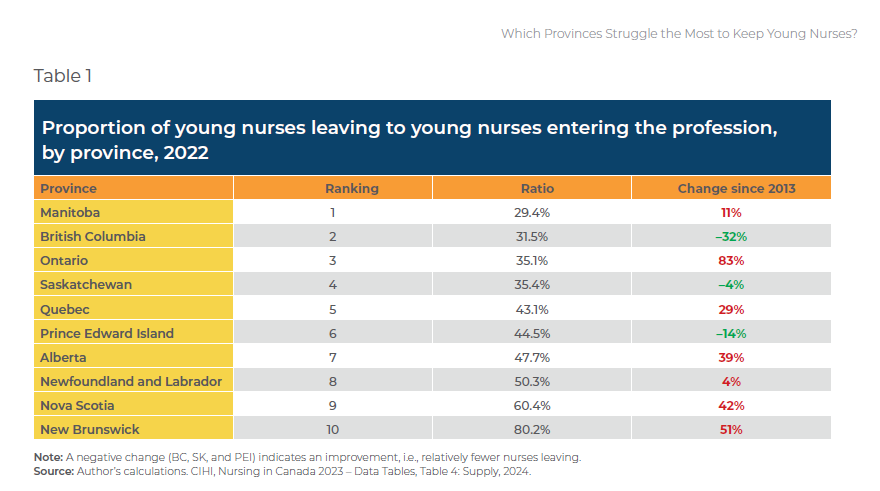16 hour shifts are bullshit. 12 hour shifts are bullshit. I did those hours when I was in my 20s, but I don't think I got anything out of it but resentment towards society. I certainly couldn't pull those hours when I got older, and add a family on top of it. Jesus. It's not like firefighters who work crazy shifts, but sleep and work out for a majority of their "shift".
Canada
What's going on Canada?
Related Communities
🍁 Meta
🗺️ Provinces / Territories
- Alberta
- British Columbia
- Manitoba
- New Brunswick
- Newfoundland and Labrador
- Northwest Territories
- Nova Scotia
- Nunavut
- Ontario
- Prince Edward Island
- Quebec
- Saskatchewan
- Yukon
🏙️ Cities / Local Communities
- Calgary (AB)
- Edmonton (AB)
- Greater Sudbury (ON)
- Guelph (ON)
- Halifax (NS)
- Hamilton (ON)
- Kootenays (BC)
- London (ON)
- Mississauga (ON)
- Montreal (QC)
- Nanaimo (BC)
- Oceanside (BC)
- Ottawa (ON)
- Port Alberni (BC)
- Regina (SK)
- Saskatoon (SK)
- Thunder Bay (ON)
- Toronto (ON)
- Vancouver (BC)
- Vancouver Island (BC)
- Victoria (BC)
- Waterloo (ON)
- Winnipeg (MB)
Sorted alphabetically by city name.
🏒 Sports
Hockey
- Main: c/Hockey
- Calgary Flames
- Edmonton Oilers
- Montréal Canadiens
- Ottawa Senators
- Toronto Maple Leafs
- Vancouver Canucks
- Winnipeg Jets
Football (NFL): incomplete
Football (CFL): incomplete
Baseball
Basketball
Soccer
- Main: /c/CanadaSoccer
- Toronto FC
💻 Schools / Universities
- BC | UBC (U of British Columbia)
- BC | SFU (Simon Fraser U)
- BC | VIU (Vancouver Island U)
- BC | TWU (Trinity Western U)
- ON | UofT (U of Toronto)
- ON | UWO (U of Western Ontario)
- ON | UWaterloo (U of Waterloo)
- ON | UofG (U of Guelph)
- ON | OTU (Ontario Tech U)
- QC | McGill (McGill U)
Sorted by province, then by total full-time enrolment.
💵 Finance, Shopping, Sales
- Personal Finance Canada
- BAPCSalesCanada
- Canadian Investor
- Buy Canadian
- Quebec Finance
- Churning Canada
🗣️ Politics
- General:
- Federal Parties (alphabetical):
- By Province (alphabetical):
🍁 Social / Culture
Rules
- Keep the original title when submitting an article. You can put your own commentary in the body of the post or in the comment section.
Reminder that the rules for lemmy.ca also apply here. See the sidebar on the homepage: lemmy.ca
Let them have time off and they'll stick around! And some more money wouldn't hurt. The nursing crisis is fixable.
The study suggests that work-life balance is a big contributing factor. Some of the biggest concerns from nurses include lack of control over their work schedules, mandatory overtime and a lack of shift flexibility.
Wittevrongel said the situation in Alberta is worse than the national average. Nationwide, for every 100 Canadian nurses who started in the field in 2022, 40 below the age of 35 left the profession, according to the MEI report. That number is up 25 per cent from 2013. Click to play video: 'Fears of health-care collapse from delay in pay deal for Alberta doctors' 2:00 Fears of health-care collapse from delay in pay deal for Alberta doctors
In comparison with other provinces, Alberta ranks fourth when it comes to the proportion of young nurses leaving the profession, sitting behind New Brunswick (80.2 per cent), Nova scotia (60.4 per cent) and Newfoundland and Labrador (50.3 per cent).
If they weren't funded better, and there was better oversight on how those funds were spent, we'd have better retention. With more funding comes the ability to hire more and alleviate the need for long shifts.
Instead, we've had conservatives systematically dismantle the health care system for 50 years, and suggest that privatization is the only way to fix it.
Say it with me now: privatization only yields bare bones services with jacked up prices.
New Brunswick is 80% and this isn't the story?
The significance to Alberta being the story in this case is context. NB and every other province worse than Alberta clearly has a problem they need to deal with, however Alberta has a substantially larger compatibility of doing something about it but none of the desire or competence.

New Brunswick falling behind even faster than Alberta. And then you have Ontario more than doubling Alberta's decline rate, and not a "have-not" province either, even if they're currently at a better rate.
Seems like someone has an axe to grind.
Nursing is also one of the few professions where they still have to pay for their own internship (going further into debt).
A doctor in training is paid while a nurse in training is not only working for free, but paying a fee to be there. Not sure if this is consistent in every province though.
Don't worry the government will just ease requirements for recognizing foreign credentials and import a bunch of loosely qualified nurses to fill those roles. Typical Canadian solution.